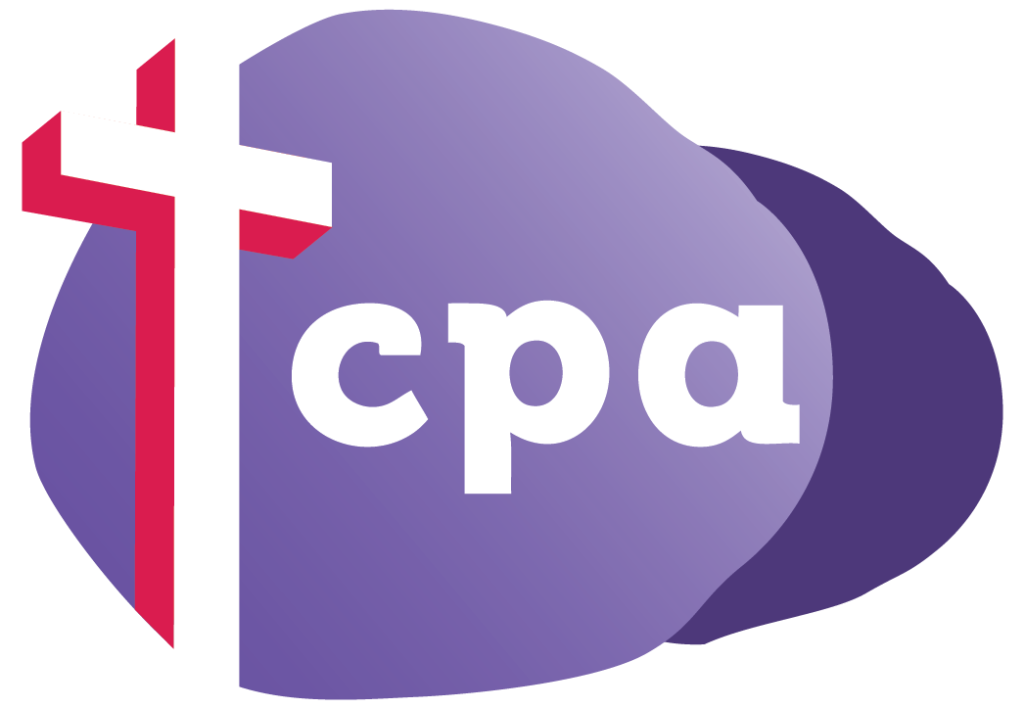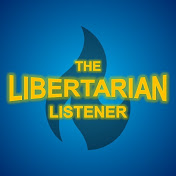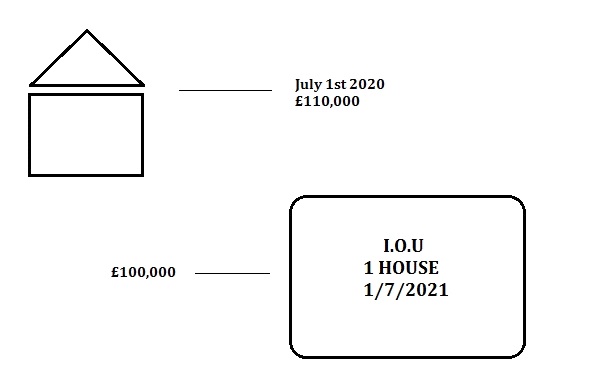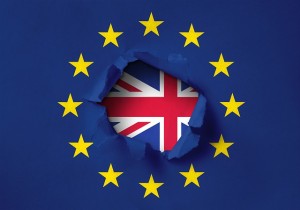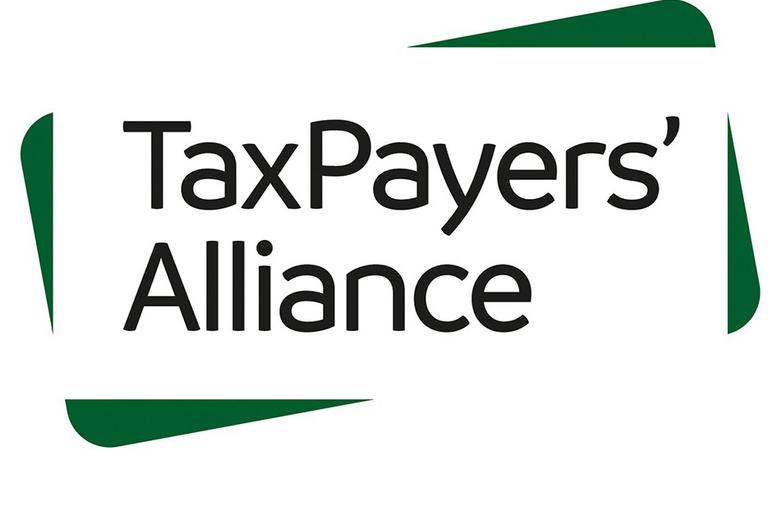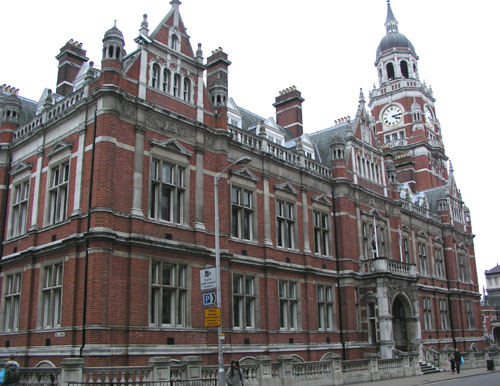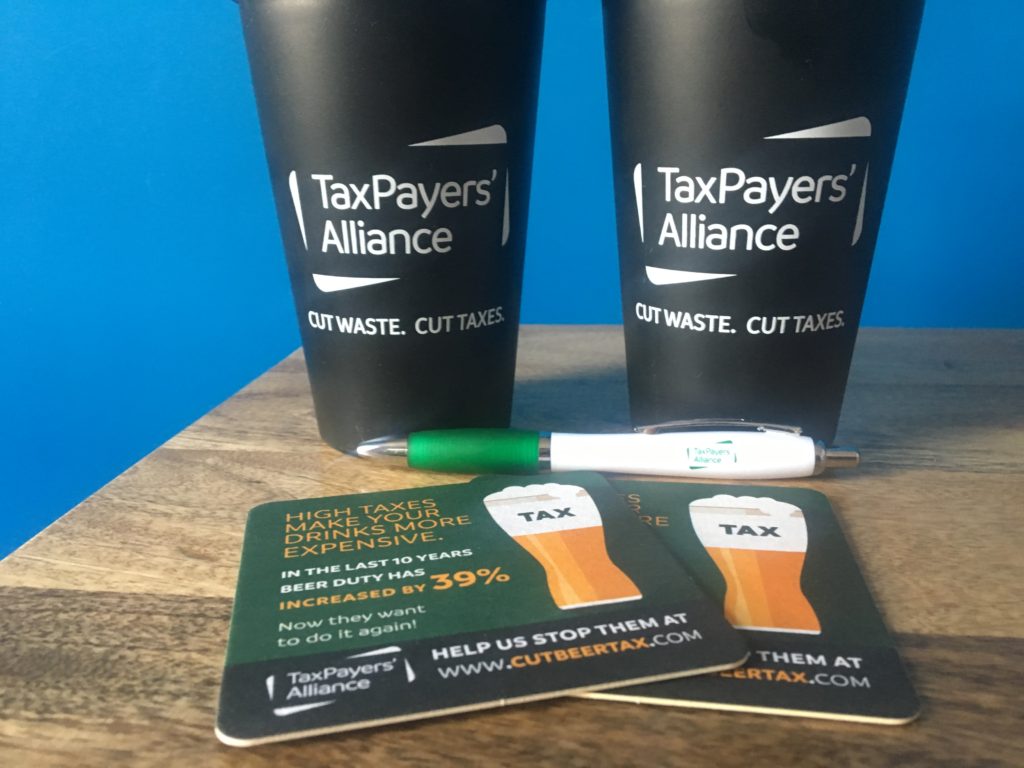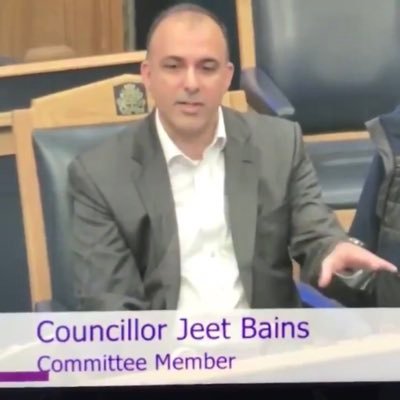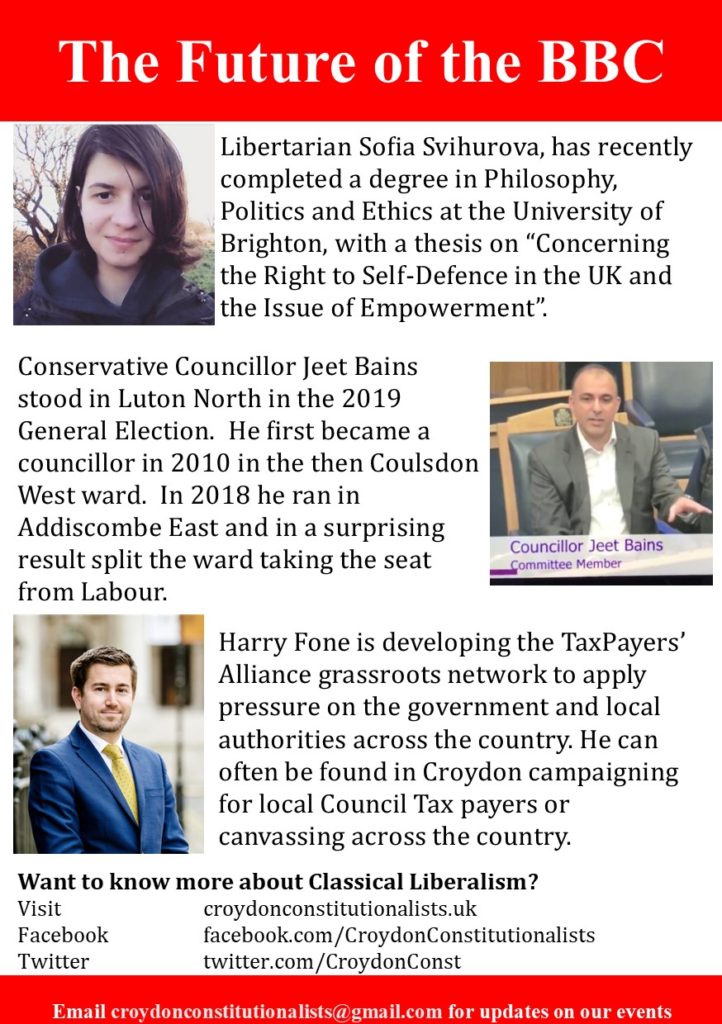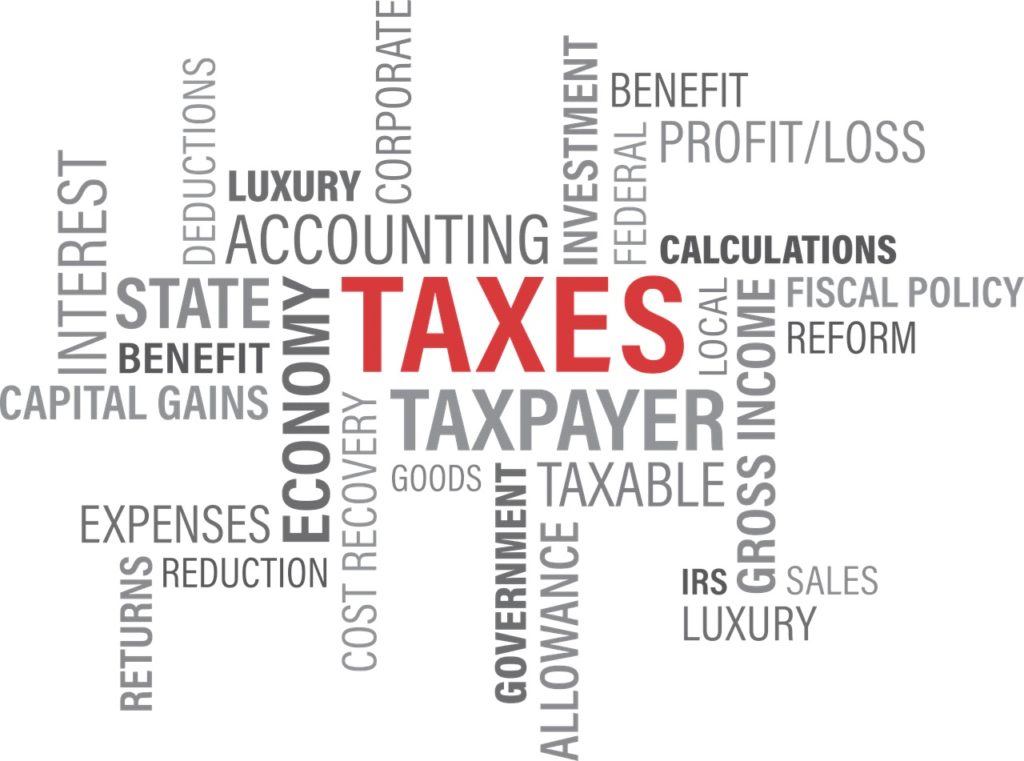One of the largest of the ‘small’ parties the Christian Peoples Alliance party has been steadily gaining ground in elections. Often standing locally to us in Croydon we’ve interviewed previous candidates Candace Mitchell and Maureen Martin.
Dr Tom Rogers has been a long standing supporter and party activist, and is the party’s Deputy Leader. He was also the party’s candidate in the 2019 Peterborough by-election and again, in the same year, in the General Election.
Tom thank-you for your time.

You’ve run twice in your home town for parliament, tell us a little about the campaigns and how you feel they went for the party?
Our policy as a party is to stand in every election that we can, as it’s a way of building the party, but especially promoting our deep conviction that Christian values and principles are crucial to us both surviving and then thriving as a nation.
I knew I had to stand when it looked like a by-election was coming up in Peterborough, where I live. The situation first arose when Fiona Onasanya, our sitting MP, was arrested in July 2018 for perverting the course of justice. However, we were on stand-by for nearly a year, unsure of whether the election was going to happen or not, and it finally took a recall petition for the election to be called and then we all went into an overdrive of activity. This was the first time we had stood a candidate in Peterborough and really wanted to establish ourselves in the city, and promote our Christian pro-life message. I had fantastic support from Sid Cordle, our party leader and also my agent in that election — he organised many supporters to come from all over the country to help campaign. We really put a lot of time and effort into personally making our party known to people – and undertook many hours of door-knocking, in order to explain who we were and what our policies are about. I had a certain apprehension, unsure of how people would take us — we of course met a certain amount of opposition, or people who were wedded to the main parties, but overall I was greatly encouraged by the level of support we received, as well as the number of people prepared to stand there and give us a hearing.
As you might expect we connected with a number of Christians, but also Muslims and people of other faiths, who were pleased we were making a stand particularly on the moral issues, for marriage and the family, and also in defence of parental rights over the new compulsory relationships and sex education, as government policy in that area had made many families anxious. People generally were also impressed, however, by our economy policies, and liked our idea of the Turnover Tax, which would ensure big multinational companies like Amazon and Google, who transfer their profits abroad, pay their fair share of tax here, and that’s how we would fund our financial support for marriage (£12,000 grant on getting married) and restoring the Tory’s £12 billion cuts to benefits.
In the by-election we were part of a very crowded field, but were encouraged to have come 7th place in the vote out of 15 candidates. For us, as a relatively new party, the election was largely about making our mark and getting our Christian message out there which we really did. For most people that by-election was really about Brexit, and there was a large protest vote for the Brexit Party, and, of course, the following General Election (just 6 months later) was also mainly about Brexit and there was a massive swing back to the Tories. We didn’t improve on our vote, which was disappointing, but on a personal level I had developed really as a candidate and was much stronger in debates, interviews and getting our message out in the local media. That was important as with the cold dark December evenings we didn’t have as much chance to do all the door-knocking that we did in the summer. Fighting two Parliamentary elections in the space of six months was certainly exhausting, and I was certainly ready for the Christmas break and to spend more time again with the family afterwards.
In the by-election you found yourself ‘cancelled’ from a hustings held in a church! Can you tell us about the events around that?
There were a number of hustings which took place during the by-election campaign — certain of which invited all standing candidates, which is the fairest and most democratic way, and others which just invited candidates from the “main parties”, and I could understand, even if I disagreed, that certain organisers would restrict things in that way given that there were 15 candidates. However, there was a large hustings organised at St John the Baptist CofE Church in the centre of Peterborough, where the criteria for who they invited was completely arbitrary and made no sense – they only allowed 8 candidates, which included the “main party” candidates, but also certain select and favoured smaller party candidates, including the newly reformed SDP and the unknown Renew Party, both of which had polled lower than CPA in previous elections. One would have thought that a Christian church would have actually wanted an openly Christian party candidate to participate at such an event. However, this “St John the Baptist” church certainly does not live up to name of the prophet they’ve adopted — they are a liberal, pro-LGBT ideology, so-called “inclusive” church who no doubt were uncomfortable with having faithful Christians on the platform who actually stick to the Biblical truth on issues like marriage and abortion, and other important issues of our day.
Anyway, we were not invited but Sid Cordle, acting as my agent, was determined that they should do the fair democratic thing and allow me onto the platform. We were in town on that evening for an earlier election-related event nearby, so we thought we’d go along to the St John hustings anyway. Sid tried to reason with the Chair, who was the vicar of the church, beforehand to allow me onto the platform, but we were again rebuffed. At the time I would have just left it, but Sid is a courageous man of God, on fire with the Sprit and he has no qualms whatsoever about taking his complaint to the audience. He therefore stood up before the start of the debate and addressed the audience, explaining that the selection of candidates for the debate was unfair and demanding that a vote should be taken on whether to allow me onto the platform. The Chair, Canon Black, would not allow such a vote to take place and stated the debate would go on with the chosen candidates as planned. Sid and I sat down. The first question was on Brexit and all the eight candidates had their say — I could see Sid next to me with his head in his hands deep in prayer through all this. The Brexit discussion was supposed to address the question of how each party would bring the country back together again after such a divisive debate. Sid was going to ensure the CPA had their say on this regardless — he stood up and again addressed the crowd, stating that only the CPA had the solution to this, as we would honour the result of the 2016 referendum and leave the EU, but guarantee another referendum 5 years after we’ve left so people can actually see and make up their own minds about how Brexit has worked out in reality. However, the Chair did not welcome this intervention and ordered security to remove Sid from the hall. So much for their “inclusive” church!

What does being deputy leader of the party mean in terms of a role, and what are you focused on?
Being deputy leader can mean different things in different parties. It does include being a stand-in for the leader, and sharing with certain frontline duties, such as media interviews and public speaking. However, in our party the deputy leader also has the very specific role of overseeing policy development and the manifesto, and that is what I am primarily focussed on at the moment. It’s very important for us that we have a manifesto that not only makes us distinct from the other parties, but also offers a positive vision and is unafraid of proclaiming real truthful solutions to our nation’s problems, no matter how “politically incorrect” they seem. We were very proud of our 2019 General Election Manifesto, not only of the strong pro-life and pro-family stance we adopted, but also the range of strong down-to-earth practical, fair and workable policies we have on a whole range of issues, from the economy to the environment. We are very blessed in our party to have many people with particular specialist knowledge and talents in many different areas, who were able to contribute strong policy ideas, for instance, in areas like social and health care. The development of policy is very much a collective exercise, in which those with a particular interest will want to contribute along the way, but it’s my role as deputy leader to ensure the process keeps moving and results in strong manifesto items to offer to the electorate at the end of it.
“many parents got to try their hand at homeschooling for the first time. It may not work for everyone, but many found they were actually quite good at it, that they enjoyed the experience, and, most important of all, their kids made far greater educational progress in that time than they ever would have done at a conventional school”
You’ve worked in Education for a number of years, what do you think of the impact of Covid on education and exams this year?
The impact of the Government’s totally erratic and disproportionate response to Covid-19 has been catastrophic across the board – to our economy, healthcare system, to most industries and countless businesses, to our education system, to people’s lives and livelihoods and, above all, to our basic human rights and civil liberties. Historians in future generations (as far as we have a future) will scratch their heads as to why we committed national economic suicide for the sake of a virus with a 99.9% survival rate, and which for most of the population results in an asymptomatic or relatively mild illness at worse. The Government actually had a very right and sensible approach to the ‘pandemic’ at the start of it all – which was to focus on safeguarding the elderly and other vulnerable groups at risk, whilst allowing normal life to carry on as far as possible, whilst natural herd immunity developed through the majority of the population. I guess there was no money in that approach though for Big Pharma and the vaccine-pushers, who just happen also to have the mainstream media in their pockets.
The education system is a case in point. The Government was rightly resisting shutting down the schools in early March, recognising the impact not only on children’s education, but on all the parents who would not be able to work because of new child care responsibilities. It was early recognised that Covid posed an incredibly low risk, if any, to children themselves. But the clamour of the lame-stream media’s cheerleading for school closures was quickly too much for them and the Goverenment buckled – to what end? Once they’d shut the schools for 3 months there was no easy solution to the problem of what to do about exams, etc. I don’t think going on predicted grades was necessarily the fairest thing to do, but was fairer than relying on some over-complicated algorithm and was probably the most practical.
Perhaps the one good thing about the school lockdown was that many parents got to try their hand at homeschooling for the first time. It may not work for everyone, but many found they were actually quite good at it, that they enjoyed the experience, and, most important of all, their kids made far greater educational progress in that time than they ever would have done at a conventional school. That was also our family experience and my wife decided to carry on homeschooling our 4 year-old as it worked so well for him. With the State having done so much to undermine the role of parents, particularly with the attack on their rights over relationships and sex education, then home-schooling during lockdown proved to be a very empowering experience for many parents.
Whilst on Covid how do you feel the established church and churches more generally have acted in lockdown?
It’s really been a tale of two churches.There have been many individual Christians, including brave clerics and pastors, and a number of Christian organisations and smaller churches, that have really discerned spiritually what is going on, and have raised a prophetic voice against the completely disproportionate and oppressive measures of the State. They have been in the minority though and in view of the catastrophic, Godless depravity into which our nation has descended in recent times, then it’s a spiritual no-brainer — if we’re taking the word of God seriously — that, as well as showing active compassion for those suffering, the Church should be declaring the reality of God’s judgement and calling for urgent national repentance.
Unfortunately, that urgent prophetic voice has been all but drowned out by the deafening silence we’ve heard from the established church and other main denominations — and that’s been a sad indictment of how compromised Christianity has become in the West. As a Catholic I was totally dismayed at the attitude of our Bishops which has throughout been one of total craven faithlessness. Their response to the Government has been not just one of total compliance — but, even worse, of over-compliance, to the extent that they have always gone even further than required — as if they believed they could earn extra brownie points from the State. For example, when announcing the national lockdown the Government initially wanted to ban collective worship but keep the churches open for private prayer. However, not content with those oppressive measures the Catholic bishops actually lobbied the Government to go the whole hog, persuading them to shut up the churches altogether! So not only were we denied Mass and the Sacraments (which are supposed to be very essentials of the Catholic faith) for over three months, but the Bishops also denied us entrance into the house of God. That has had a devastating effect on many of the faithful and has sent an appalling message to the world concerning what the Church actually stands for — or even whether it can still stand for anything at all. Look, if Jesus and countless of his faithful followers ever since could mix with lepers, and tend to desperate souls in some of the most dangerous situations on earth and in the history of mankind, how could the Church now simply shut up shop in response to a virus with a 99.9% survival rate? Take measures to protect the vulnerable yes (if they choose to be protected in that way), but give some hope and meaning, why don’t you, to what this life is all about.
Thankfully my faith in God, if not Church leaders, has only grown stronger through all this and I know He will use these events, and the tribulations and persecution that are likely to come, to purify His Church of all the dross so it will be more faithful, more prophetic, more full of the Spirit, so it will do what it was created to do — which is to save souls and represent Christ on earth until His coming.
“we have to keep reminding people of the complete humanity of every unborn child — who is not just a potential life but an actual human life just like each of us”
The CPA works to protect the unborn child. Abortion isn’t an issue we’ve seen gain the same traction in the UK as say in the US. What is your party’s policy on abortion and what are one or two things you would you say to our readers who might be less familiar with the issue to persuade them to it?
We are a 100% pro-life party in that in our manifesto we pledge to protect the right to life (from intentional killing) of every innocent human being from conception until natural death. That is the only way for a Christian party to be. EVERY LIFE MATTERS for the CPA. So in practice that means complete repeal of the 1967 Abortion Act and 1990 Human Fertilisation Act so that all unborn children are legally protected from intentional destruction. We would also repeal the Northern Ireland Act 2018 which was so abused and hijacked in order to impose abortion on that very pro-life part of the UK, completely against the will of the electorate there. We would legislate for a new Offences Against the Person’s Act, if necessary, to prohibit abortion, embryo experimentation and all forms of euthanasia.
We do recognise, however, the difficulties often faced by those who turn to abortion. We would support the nationwide provision of pro-life pregnancy care services, including provision of accommodation for women made homeless by pregnancy, pregnant women with special needs and one-parent families. We would divert the over £200 million of UK taxpayers’ money spent each year on funding abortion here and abroad onto supporting any mother in a crisis pregnancy situation. We would also ensure recognition for the millions of women, and men, who have been deeply affected by abortion. Post-abortion trauma affecting many women must now be recognised and non-judgemental post-abortion counselling will be made available for any woman or man who wants it, no matter how long ago the abortion took place.
Surveys of public opinion still show that there is a general unease about abortion in the population, and most people in UK certainly don’t want an abortion free-for-all, or believe in a “woman’s right to choose” no matter what. For instance, a 2017 ComRes poll (the most extensive UK polling in last decade on abortion) showed only 1% of the population (and 1% of women) in favour of allowing abortion up to birth, and around 60% of women favoured a reduction in the current legal limit. So the abortion industry and it’s champions in Parliament, like Stella Creasy are clearly out of step with public opinion. I’m not saying public opinion is where we are at this stage, but it’s not where the abortion industry is either — probably somewhere in the middle. Most people know in their heart of hearts what abortion really is. The truth has always kept its foot in the door.
The pro-abortion lobby has naturally always tried to make the unborn child a complete irrelevance, to be discarded whenever him or her is inconvenient. So we have to keep reminding people of the complete humanity of every unborn child — who is not just a potential life but an actual human life just like each of us, with a lifetime of gifts and contributions to the world in front of them. Every abortion stops a beating heart — that’s a fact because the human heart is there and beating from just 21 days, that’s 3 weeks, from conception. In fact, some of the latest research from Oxford University suggests even earlier —that the heart could beat from just 16 days, or 2 weeks! Human life is so miraculous in its wonder and complexity that each and every human being can only be the beloved creation of God. Also we have to listen to the stories which demonstrate how abortion is never the right answer, even in response to sometimes very real and genuine difficulties — stories from the women and men who have not found abortion to be the solution to their problems, but something that just created a whole set of new and worse problems. And those who rejected or survived abortion, who were blessed by the choice of life, and now enjoy the gift of life which in so many ways conveys its own amazing answer.
We have seen an explosion of the culture wars in the UK during lockdown. What’s your take on the political climate?
The “culture wars” are something we’ve up to very recently regarded as a mainly American phenomenon, because there’s a more marked polarisation in mainstream politics in America than there is here — there’s a genuine choice, even if I’m over-generalising somewhat, in the USA between the Christian social values and free market capitalism of the Republican Party and the cultural-Marxist social values and increasing economic socialism of the Democratic Party. Whereas in Britain you’ve basically got a liberal and clueless one-party state characterised by cultural Marxism and a mixed market watered-down economic socialism. Despite what orchestrated pantomimes we witness between the establishment parties, they are starting now to fail to delude the electorate into thinking they offer some kind of choice.
The whole disproportionate and oppressive lockdown response to the paltry threat to humanity posed by Covid-19 has of course been the most striking and extensive power-grab of the liberal Deep State that we’ve seen yet. Taken by itself it’s very disturbing. However, even before Covid we saw great signs of a rising populist challenge to the Deep State, an uprising that was most visibly represented by the Brexit referendum and the Brexit party, and also an increasing resistance to and justifiable ridiculing of “woke culture” in all its grotesque forms, which was all very encouraging. There is a definite growing backlash against the attempted brainwashing of the population by the Deep State. The Keep Britain Free campaign, led by Simon Dolan, who is pursuing a legal challenge against the lockdown measures, and the wonderful well-attended anti-lockdown protests, featuring Piers Corbyn amongst others, have been inspirational and are conveying the important message that we need urgently now to stand up for these precious freedoms we hold so dear before it’s too late. I see such a massive threat of Deep State totalitarianism, but also so many green shoots of resistance. Where sin abounds grace abounds the more!

You plan to run candidates in the local elections in May. What would the CPA focus on in local government?
Most local issues are in fact inextricably connected to national issues, or at least decisions made at Westminster, now more so than ever. Many local councils, for instance, are left in the difficult position of having to make drastic cuts to local services and social provision because of sweeping funding cuts from central Government. However, there are still many priorities to be made. CPA local candidates stand, firstly, for the prioritising of the welfare of the most vulnerable and in need, so we will strive to ensure that the elderly, sick and disabled have essential social care provision in place. Actually, one of our signature policies in our forthcoming London Assembly Manifesto will be the provision of dedicated personal assistants to elderly and vulnerable people who would benefit from such help — particularly those who do not have the close support of relatives and family. It is also a manifesto pledge of ours to guarantee every homeless person a free night-shelter and affordable move-on accommodation as we help them back up into society.
We also believe in a zero tolerance approach to crime and the kind of genuine anti-social behaviour that blights many of our communities, and we want to see a far higher rate of reported crime being followed up. However, we are also pledged to provide greater support and practical assistance for those leaving prison — both because it’s the right thing to do and because that’s shown to cut reoffending rates drastically. We also believe in providing reliable and efficient public services and cutting down waste and pollution, creating a safe and clean environment for all local people. We also aim to help revitalise our city centres by a number of means, including the provision of more residential living accommodation – which helps retain local businesses and retail outlets, and reduces crime and depravation by reversing the ‘ghost town’ effect.
It goes without saying that we will also reverse the wasteful virtue-signalling and promotion of pro-LGBT ideology, BLM and other left-wing ideologies that so many councils occupy themselves with — forcing their employees to wear rainbow lanyards and festooning public spaces with Pride flags etc. We believe in safeguarding freedom of speech and belief, and creating a welcoming environment for all citizens. We will particularly safeguard the right to peaceful witness and to offer charitable help outside abortion facilities — as there is now a disturbing trend for left-wing councils to try to introduce censorship or “buffer” zones around abortion clinics — mostly based on completely distorted and uncorroborated allegations about those good people who provide essential pro-life witness. It’s very important that unborn children — the most helpless, voiceless and vulnerable of all — have someone there to peacefully advocate for them, and to offer women in difficult situation the choice and practical help to choose life that they’ll never receive from the abortion clinic.
“Our goal then is to aim to field a full list of candidates in every constituency for the 2024 General Election”
What areas do you hope to run candidates in and what do you see as your party’s route to electoral success?
We will be concentrating our main efforts on the London Assembly elections, where we’ll be running a full list of candidates. There will be other candidates standing locally around the country, and we invite people to stand in their local areas, but London is where our most organised and concentrated efforts will be — to get, please God, a CPA member of the London Assembly. Our goal then is to aim to field a full list of candidates in every constituency for the 2024 General Election — we are praying both for the financial breakthrough and for many more people excited by our vision to come forward to stand as CPA candidates to enable that to happen.

How can people get involved?
The Christian Peoples Alliance party are online and you can sign up for membership or for further information on our website. You can also find CPA on Facebook and on Twitter. We can also be contacted at info@cpaparty.net
